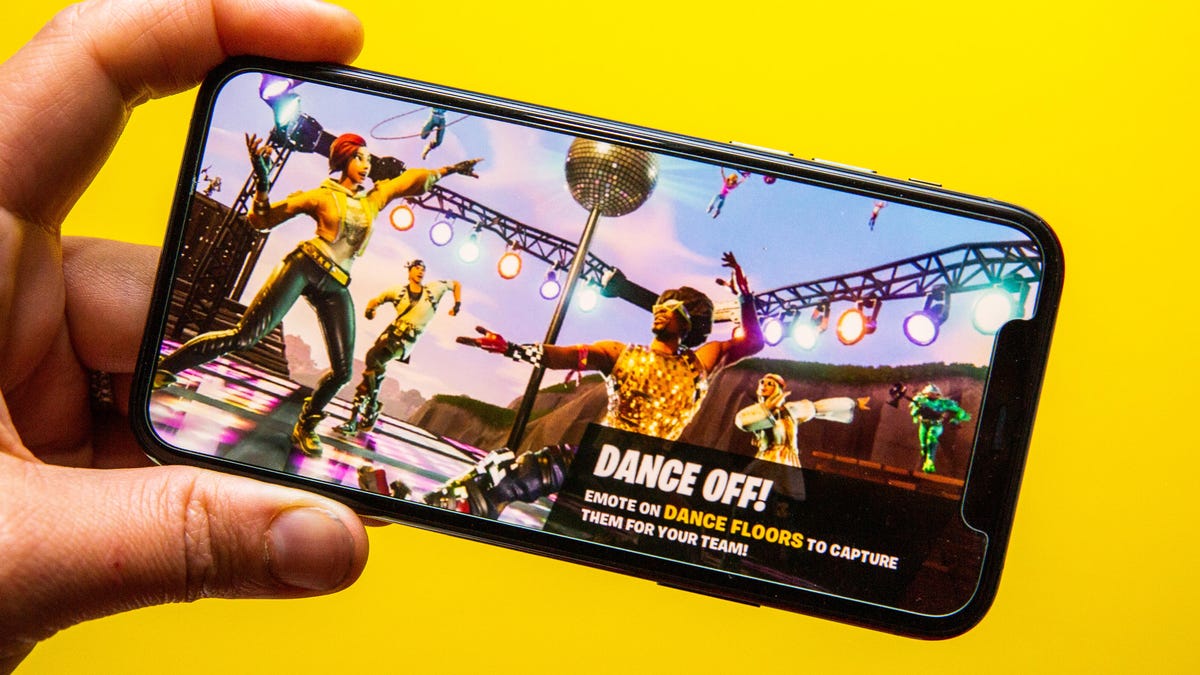Fortnite might not be back on iPhones and iPads for years
Don't expect to jump into the battle royale game on your iPhone anytime soon.

Say goodbye to Fortnite.
Apple largely won its legal battle with Epic Games earlier in September. Now it appears the iPhone maker has gone a step further by choosing not to reinstate Epic's developer account, meaning Fortnite won't be available on Apple devices for a long time.
Epic CEO Tim Sweeney tweeted Wednesday an image of what appears to be a letter his company's legal representation received regarding a request to reinstate Epic's developer program account. According to the letter, Apple decided not to reinstate the account and won't consider any future requests "until the district court's judgment comes final and non-appealable." Sweeney says that process could take as long as five years.
Late last night, Apple informed Epic that Fortnite will be blacklisted from the Apple ecosystem until the exhaustion of all court appeals, which could be as long as a 5-year process. pic.twitter.com/QCD7wogJef
— Tim Sweeney (@TimSweeneyEpic) September 22, 2021
US District Judge Yvonne Gonzalez Rogers handed down her highly anticipated ruling in the court case between Apple and Epic Games on Sept. 10, siding mostly with the iPhone maker. Epic had breached its contracts as a developer for Apple's devices, she wrote. It had also failed to prove Apple's App Store and associated developer rules constituted a monopoly.
Fortnite was kicked out of Apple's App Store in August 2020 over a thing called V-Bucks, in-game currency which people use to buy new looks for their characters and weapons. Typically, players on iPhones have to pay for V-Bucks using Apple's payment methods, which automatically take up to a 30% commission. On Aug. 13, Epic turned on hidden code that allowed users to buy V-Bucks from the company directly, and for a 20% discount.
Epic's actions went against Apple's rules at the time, and the game was banned from the App Store, leading to the lawsuit and the termination of the publisher's developer program account.
In her ruling, Rogers said that although Apple's business practices may be anti-competitive, they largely don't constitute antitrust violations. She did issue one ruling against Apple though, telling the company it must allow developers to inform app users about alternative payment methods off the App Store. So, in theory, Fortnite could remove its payment option and offer a link to its website for V-Bucks instead.
Epic notified the court on Sept. 12 it would appeal the ruling.
Read More: Apple mostly wins Epic trial, but must ease payment rules
Apple has repeatedly said before, during and after the decision that it would allow Fortnite back into the App Store if Epic followed Apple's rules and changed its code back to remove the alternative payment methods. Sweeney tweeted on Sept. 10 his company's game would return "when and where Epic can offer in-app payment in fair competition with Apple in-app payment, passing along the savings to consumers."
Sweeney tweeted Wednesday an email sent to Phil Schiller, who leads the App Store, saying Epic would adhere to the store's policies. He took issue with this change of heart by Apple.
"Apple lied," he tweeted Wednesday. "Apple spent a year telling the world, the court, and the press they'd "welcome Epic's return to the App Store if they agree to play by the same rules as everyone else". Epic agreed, and now Apple has reneged in another abuse of its monopoly power over a billion users."
Apple lied. Apple spent a year telling the world, the court, and the press they’d "welcome Epic’s return to the App Store if they agree to play by the same rules as everyone else". Epic agreed, and now Apple has reneged in another abuse of its monopoly power over a billion users.
— Tim Sweeney (@TimSweeneyEpic) September 22, 2021



